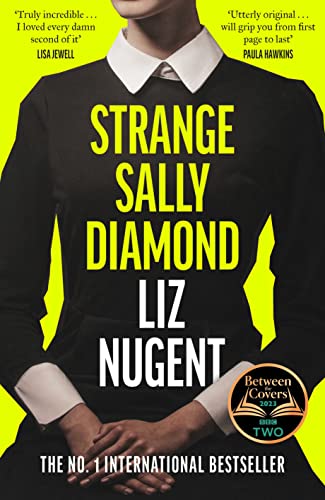This is a novel about families. But these families are the polar opposites of ‘cereal box families’ where Mom bakes good wholesome apple pies. These families are psychotic, cruel and dysfunctional in the extreme. They are dominated by Conor Geary, an extreme misogynist, despising and loathing women. This is a deeply uncomfortable story of his actions in raping and incarcerating his family members. In case anyone thinks that all this is too far-fetched, then look up the real-life case of Josef Fritzl.

There’s an emerging sub-genre of fiction and drama (Eleanor Oliphant, Room by Emma Donoghue, The Somewhere Boy) about lonely isolated (either voluntary or compelled) people. When today we are expected to have hundreds of ‘friends’ who ‘like’ us on social media, these stories are a challenge to consider how really connected we are. Do novels such as these endeavour to balance this culture by reminding us that are other realities where people exist in extreme isolation?
In this novel, there are really two protagonists, the eponymous Sally, incarcerated and deprived of social stimuli to the point where she develops quasi-autistic traits such as discomfort at being touched, limitations to reading other intentions and following instructions literally. A second protagonist appears, much later, her brother. They do, over a long period, emerge from their traumatic upbringing. and begin to re-build in a way their lives. But it doesn’t end well. Despite a big inheritance, their relationships collapse, and truths emerge thanks to the new trope of a true crime investigative podcaster.
I wasn’t convinced by the tone of Sally’s voice. I had the feeling that the author was aiming for an impaired voice but not capturing in print the uniqueness of that voice. Sally presents as someone who understands her own psychological processes and limitations. This could be ascribed to the interventions of Tina, the psychotherapist, but I was unconvinced that someone who had experienced such profound trauma could make such a recovery. The damage would have been long-lasting and irredeemable.
But the last part of the book is a disappointment. We learn that Peter’s behaviour becomes similar to Sally’s (although far crueller and more transgressive). As a consequence, we learn little more than what we already know. The last part become sadly predictable through a recapitulation of Conor Geary’s psychotic actions. Nothing new happens to either inform us of these two protagonists or to provide an increase in tension and pace to build to a denouement.
The first half of the book is engaging in its dreadfulness, but the second half becomes repetitive and dull. By this time, we have become numb to these awful events. However, a real benefit of reading this nightmare of a novel is that you become deeply thankful to see any parent and child who are loving and attached to each other.
